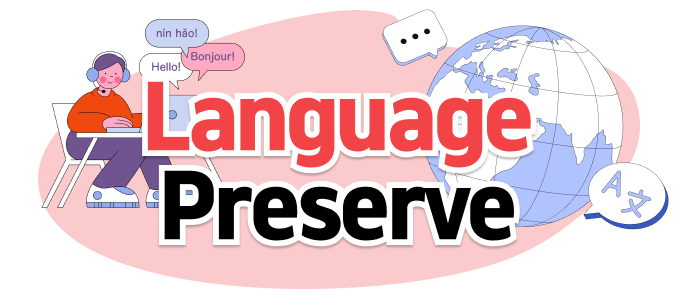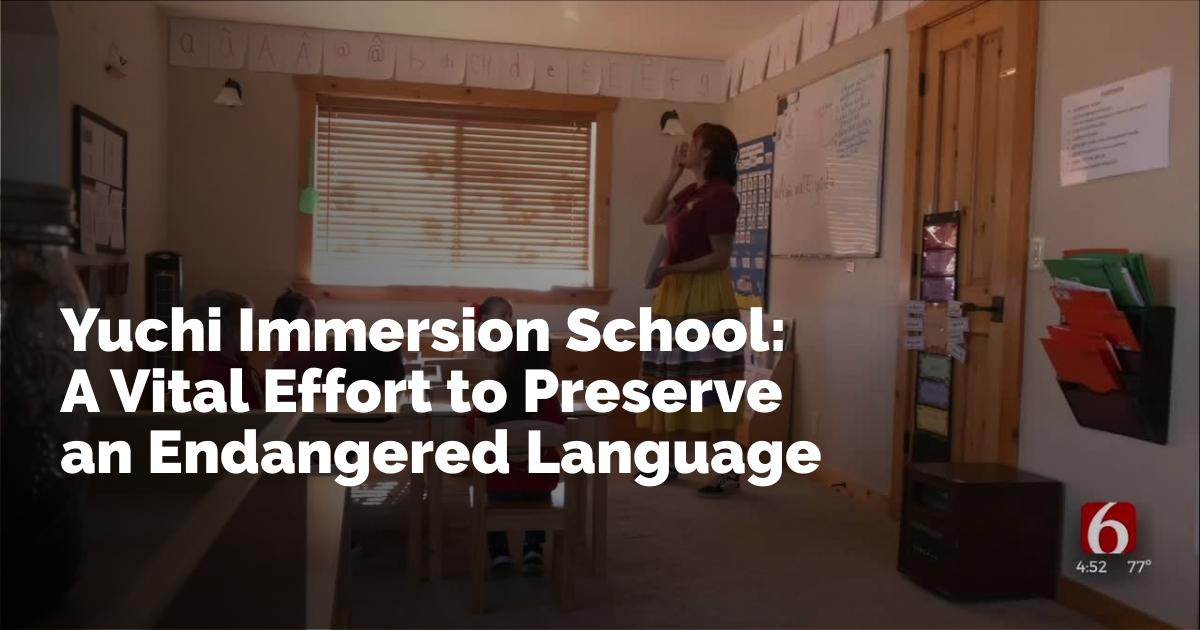Preserving a Legacy: The Yuchi Immersion School
The Yuchi Immersion School in Sapulpa, Oklahoma is a beacon of hope and a hub of cultural preservation. As you walk through its halls, the sound of the Yuchi language—an endangered tongue with fewer than a hundred conversational speakers worldwide—fills the air. This school exists not just as an educational institution, but as a critical lifeline for a culture and language at risk of disappearing.
A Unique Educational Approach
Under the guidance of Project Administrator and teacher Halay Turning Heart, the Yuchi Immersion School operates with a unique approach. Throughout the day, Turning Heart speaks exclusively in Yuchi, whether she is singing, praying, or teaching. This method of language immersion is not just a teaching tool but a celebration of a rich cultural heritage. Turning Heart believes that learning the Yuchi language is essential to understanding Yuchi history and identity. "Everything that we need to know, our stories, our songs, it's all in the language," she explains. By prioritizing this immersive experience, the school aims to nurture a new generation fluent in their ancestral language.
From Weekly Classes to Full-Time Immersion
The Yuchi Immersion School is part of a broader initiative known as the Yuchi Language Project. What began decades ago as an effort to offer weekly classes has grown significantly. Today, the program involves dozens of children ranging from infants to ten-year-olds, all learning Yuchi before they learn English. This shift marks a concerted effort to restore the language to daily use within the community, reversing decades of cultural erosion.
Reconnecting with Heritage
For families like Tricia and Acee Allen, the school is an invaluable opportunity to reconnect with their roots. Tricia’s father was discouraged from speaking his native language, a narrative not uncommon among indigenous communities due to historical policies aimed at assimilation. Through the Yuchi Immersion School, the Allens can recover what was nearly lost. "It's been a long time since either of our families have spoken the language," Acee Allen notes, underscoring the school's role in healing and cultural reconnection.
A Community United
The impact of the Yuchi Immersion School extends beyond the children. It also enriches the lives of the adults in the community. Wanda Brese, a 75-year-old cook at the school, participates in adult classes to learn Yuchi. She recounts her grandfather's experience at a Yuchi boarding school, where he was punished for speaking his language. This traumatic past meant he did not teach Yuchi to his children. Yet, despite these historical injustices, Brese and other older community members find joy and purpose in learning the language their ancestors spoke with pride.
Overcoming Challenges
Learning Yuchi, especially for adults who have no prior exposure, is not without its challenges. However, the joy of preserving their cultural identity and hearing the children speak their ancestral language makes the effort worthwhile. For Tricia Allen, this endeavor is deeply personal and emotional. "I wanted my children to be able to carry it on since I wasn't able to for my dad," she shares. The school empowers families to reclaim a vital piece of their heritage and ensure its survival for future generations.
Echoes of Resilience and Pride
The young voices of Yuchi-speaking children at the immersion school are emblematic of resilience and a collective sense of pride. Each word spoken in Yuchi represents a triumph over historical attempts to suppress the language and culture. The Yuchi Immersion School is more than an academic facility; it is a testament to the strength and enduring spirit of the Yuchi people. Through their dedication, they forge a path that honors the past while embracing the future.
As the school continues its mission, it becomes a dynamic part of a broader movement to preserve indigenous languages and cultures worldwide. While the challenges are significant, the inspiration drawn from the laughter and learning within its walls offers a promising glimpse into a future where the Yuchi language and culture thrive anew.
출처 : Original Source

